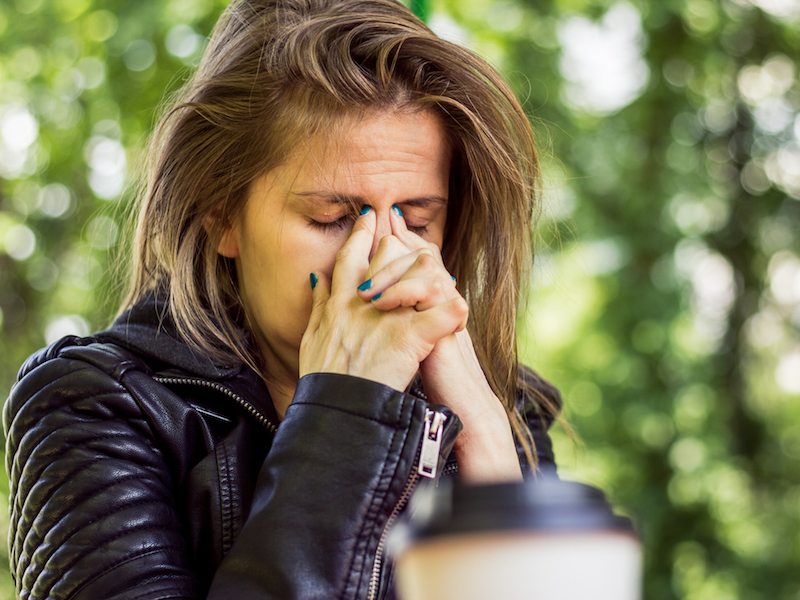
For weeks you’ve been sneezing and coping with a stuffy nose. Because of the persistent pressure in your nose, it’s hard to get any sleep, and you’re feeling exhausted (as well as a bit cranky). You know it’s not a cold, as that would have gone away days ago.
That leaves a few other possibilities – like allergies or a sinus infection. The difficulty is that the symptoms of both conditions are comparable.
Allergies and sinus infections have some shared symptoms
Sinus infections typically are not contagious. They develop because something causes swelling in your sinuses like a cold or similar bug. When your sinuses are inflamed, mucus and fluids build up and often trigger a sinus infection. The sinus infection itself can generate further inflammation, meaning symptoms of this particular condition can linger for quite a while.
Allergies, however, are a consequence of exposure to an allergen like dust, pollen, or pet dander. Your immune system takes defensive action when it misidentifies whatever allergen you are allergic to as an invasive danger. As your body attempts to get rid of the allergen it makes you sniffle and sneeze.
While they both have considerably different causes, the symptoms of allergies and sinus infections present in similar ways.
Here are some of those symptoms:
- Fatigue
- A runny or stuffy nose
- Sneezing
- Headaches
Itchy eyes, red eyes, and wheezing are a few symptoms that are exclusively associated with allergies.
Symptoms exclusively connected with sinus infections include thick mucus with a distinct color to it, pressure-related headaches (often with a toothache), post-nasal drip, feeling as though your face is in pain or swollen, fever, and bad breath.
Sinus infections and allergies can feel quite similar, so if you have any doubt, it’s a good idea to come see us to find out for sure.
It will be a wise idea to pay attention to when your symptoms appear when you’re trying to determine where your sneezes are coming from. Over time a sinus infection will probably advance and retreat – but on an hour by hour basis, the symptoms will most likely be relatively consistent. That won’t always be true for allergies which are normally in response to the presence of an allergen.
It will be a strong indication that you’re experiencing allergies if your sneezing or runny nose worsens when you do certain tasks like gardening or cleaning. Likewise, if you happen to get a stuffy nose around the same time each year, that’s more verification you’re dealing with seasonal allergies. Of course, allergies can also trigger a sinus infection and you need to get it checked out if your symptoms don’t get better.
A course of antibiotics or a prescription steroid are the usual therapies for a sinus infection. Treatment for allergies, on the other hand, might mean taking over-the-counter antihistamines. A sinus infection can sometimes be resolved by your own immune system. It can be harder to treat allergies.
Surgery to correct structural problems in your nose (such as a deviated septum or nasal polyps) may be necessary if you are frequently getting sinus infections.
It’s up to your doctor
Self diagnoses doesn’t work. Give us a call if you have persistent congestion or sinus pain or pressure, we can help!